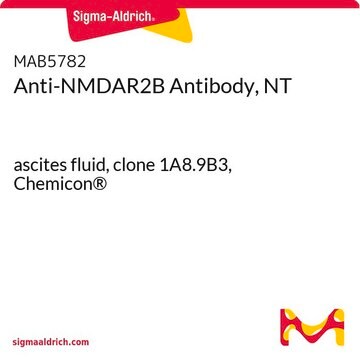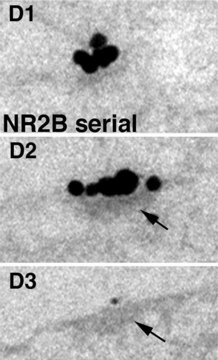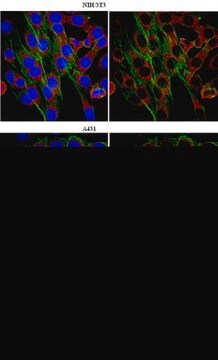MAB5216
Anti-NMDAR2A Antibody
Chemicon®, from mouse
Synonym(s):
NR2A
About This Item
Recommended Products
biological source
mouse
Quality Level
antibody form
affinity purified immunoglobulin
clone
monoclonal
species reactivity
human
manufacturer/tradename
Chemicon®
technique(s)
immunocytochemistry: suitable
immunohistochemistry (formalin-fixed, paraffin-embedded sections): suitable
western blot: suitable
isotype
IgG1
NCBI accession no.
UniProt accession no.
shipped in
dry ice
target post-translational modification
unmodified
Gene Information
human ... GRIN2A(2903)
Immunogen
Application
Immunocytochemistry: 2.5-5.0μg/mL
Western blot: 1-5 μg/mL Optimal working dilutions must be determined by end user.
Neuroscience
Neurotransmitters & Receptors
Linkage
Physical form
Storage and Stability
Other Notes
Legal Information
Disclaimer
recommended
Storage Class Code
12 - Non Combustible Liquids
WGK
nwg
Flash Point(F)
Not applicable
Flash Point(C)
Not applicable
Certificates of Analysis (COA)
Search for Certificates of Analysis (COA) by entering the products Lot/Batch Number. Lot and Batch Numbers can be found on a product’s label following the words ‘Lot’ or ‘Batch’.
Already Own This Product?
Find documentation for the products that you have recently purchased in the Document Library.
Our team of scientists has experience in all areas of research including Life Science, Material Science, Chemical Synthesis, Chromatography, Analytical and many others.
Contact Technical Service






